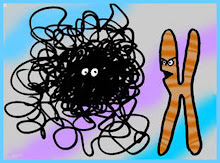This week we studied John Donne's poem "The Canonization", a rather difficult poem but nonetheless our group had a great (and fun!) time deconstructing it. I would have wanted to share with you our rather far out interpretation of the poem BUT actually right now I have to prepare the powerpoint presentation for my lecture in Pharmacology tomorrow.
Side comment: I doubt if anybody will disagree violently: Pharma can be boring. -_- When I retire from hospital work I would want to teach Literature
THE CANONIZATION
by John Donne
FOR God's sake hold your tongue, and let me love ;
Or chide my palsy, or my gout ;
My five gray hairs, or ruin'd fortune flout ;
With wealth your state, your mind with arts improve ;
Take you a course, get you a place,
Observe his Honour, or his Grace ;
Or the king's real, or his stamp'd face
Contemplate ; what you will, approve,
So you will let me love.
Alas ! alas ! who's injured by my love?
What merchant's ships have my sighs drown'd?
Who says my tears have overflow'd his ground?
When did my colds a forward spring remove?
When did the heats which my veins fill
Add one more to the plaguy bill?
Soldiers find wars, and lawyers find out still
Litigious men, which quarrels move,
Though she and I do love.
Call's what you will, we are made such by love ;
Call her one, me another fly,
We're tapers too, and at our own cost die,
And we in us find th' eagle and the dove.
The phoenix riddle hath more wit
By us ; we two being one, are it ;
So, to one neutral thing both sexes fit.
We die and rise the same, and prove
Mysterious by this love.
We can die by it, if not live by love,
And if unfit for tomb or hearse
Our legend be, it will be fit for verse ;
And if no piece of chronicle we prove,
We'll build in sonnets pretty rooms ;
As well a well-wrought urn becomes
The greatest ashes, as half-acre tombs,
And by these hymns, all shall approve
Us canonized for love ;
And thus invoke us, "You, whom reverend love
Made one another's hermitage ;
You, to whom love was peace, that now is rage ;
Who did the whole world's soul contract, and drove
Into the glasses of your eyes ;
So made such mirrors, and such spies,
That they did all to you epitomize—
Countries, towns, courts beg from above
A pattern of your love."




No comments:
Post a Comment